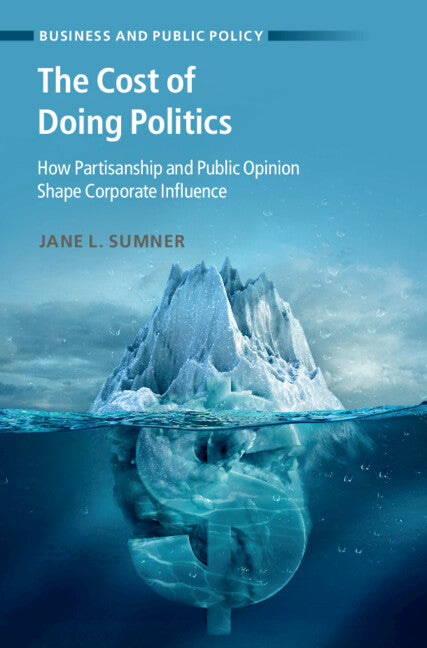Freshly Printed - allow 8 days lead
Couldn't load pickup availability
The Cost of Doing Politics
How Partisanship and Public Opinion Shape Corporate Influence
Reveals how and why corporate political influence remains largely invisible to the public eye.
Jane L. Sumner (Author)
9781009123259, Cambridge University Press
Hardback, published 5 May 2022
200 pages
23.5 x 15.7 x 1.7 cm, 0.52 kg
'… excellent for collections on American politics and government-business relations … Recommended.' D. Schultz, Choice
Using quantitative and qualitative evidence, Sumner shows how consumer boycotts can work to dissuade companies from donating money to politicians, but may also encourage companies to attempt influence by largely invisible means. Boycotts do not work as many people expect – by threatening sales. Instead, Sumner shows how boycotts are less a statement of consumer behaviour than a way for people to signal their political inclinations, and they primarily hurt companies by tarnishing their reputation. Political influence is about building relationships, which means that companies have many more options for influence than just PAC contributions and formal lobbying. With these options available, companies can decide how to influence politics when they need to, and the tarnish of boycotts to a company's image can push some businesses to pursue options that are less noticeable to the public.
1. Introduction
2. Where does political influence come from?
3. How does public opinion shape corporate political advocacy?
4. Why does the public care about corporate political influence?
5. Why do companies care about public opinion?
6. Do companies try to avoid public backlash?
7. So what and now what? Summaries and concluding thoughts
Bibliography
Appendix A: Interview methods
Appendix B: Chapter 4 study methodology and full results
Appendix C: Chapter 5 robustness checks
Appendix D: Chapter 6 robustness checks
Index.
Subject Areas: Educational: Business studies & economics [YQV], Business studies: general [KJB], Political economy [KCP], Comparative politics [JPB], Politics & government [JP], Religion & politics [HRAM2]


